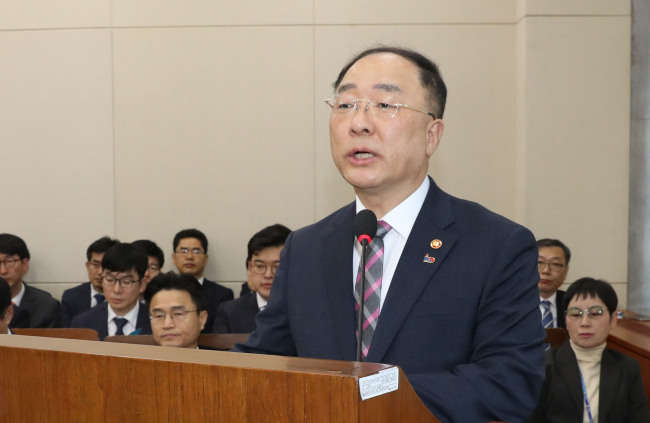South Korea’s state budget is certain to surpass 500 trillion won ($441.7 billion) for the first time next year as the Cabinet has approved guidelines endorsing expansionary fiscal spending.
While seeking measures to revitalize the economy and to enhance social overhead capital for people’s livelihood, the government also vowed to inject more public funds to tackle social problems such as low birth rate and fine dust pollution.
The Cabinet on Tuesday approved the compilation guidelines for the 2020 state budget and fund operation plan, which requires the government to play an active fiscal role, according to the Ministry of Economy and Finance.
This year’s state budget is set at 469.58 trillion won, up 40.8 trillion won from the previous year. The 9.5 percent on-year rise is the highest since the 10.6 percent observed in 2009, right after the global financial crisis.
Following the government’s proposals for expansionary spending, the state budget is highly likely to surpass 500 trillion won next year. In earlier midterm fiscal guidelines last year, the ministry had set the 2020 budget at around 504 trillion won.
Most of the increased budget will be spent on buttressing the progressive Moon Jae-in administration’s economic policy pillars, such as income-led and innovative growth, according to officials.
 |
Deputy Prime Minister and Finance Minister Hong Nam-ki speaks at the National Assembly on Tuesday. (Yonhap) |
“(Income) distribution and employment continue to be a challenge, while exports and investments remain sluggish,” said Deputy Prime Minister and Finance Minister Hong Nam-ki in a finance committee session at the National Assembly.
“The government will mobilize all policy measures to stimulate the economy, boost innovation and improve people’s life.”
Funds will be set aside to further empower sectors such as big data, artificial intelligence, hydrogen economy, 5G network services, and bio-health industries.
Also, defining the recently aggravated fine dust issue as a “social disaster,” the government vowed active fiscal spending to curb air pollution.
“(The government) is considering (drafting) a supplementary budget to respond to the fine dust issue,” Minister Hong said, in answer to a related question.
“Though details are still under review, the amount will be in trillions of won.”
Based on the latest guidelines, government departments are required to submit their budget requests to the Finance Ministry by May 31. The fiscal policy department will then deliver the government budget proposals to the National Assembly by Sept. 3 for approval.
By Bae Hyun-jung (
tellme@heraldcorp.com)








